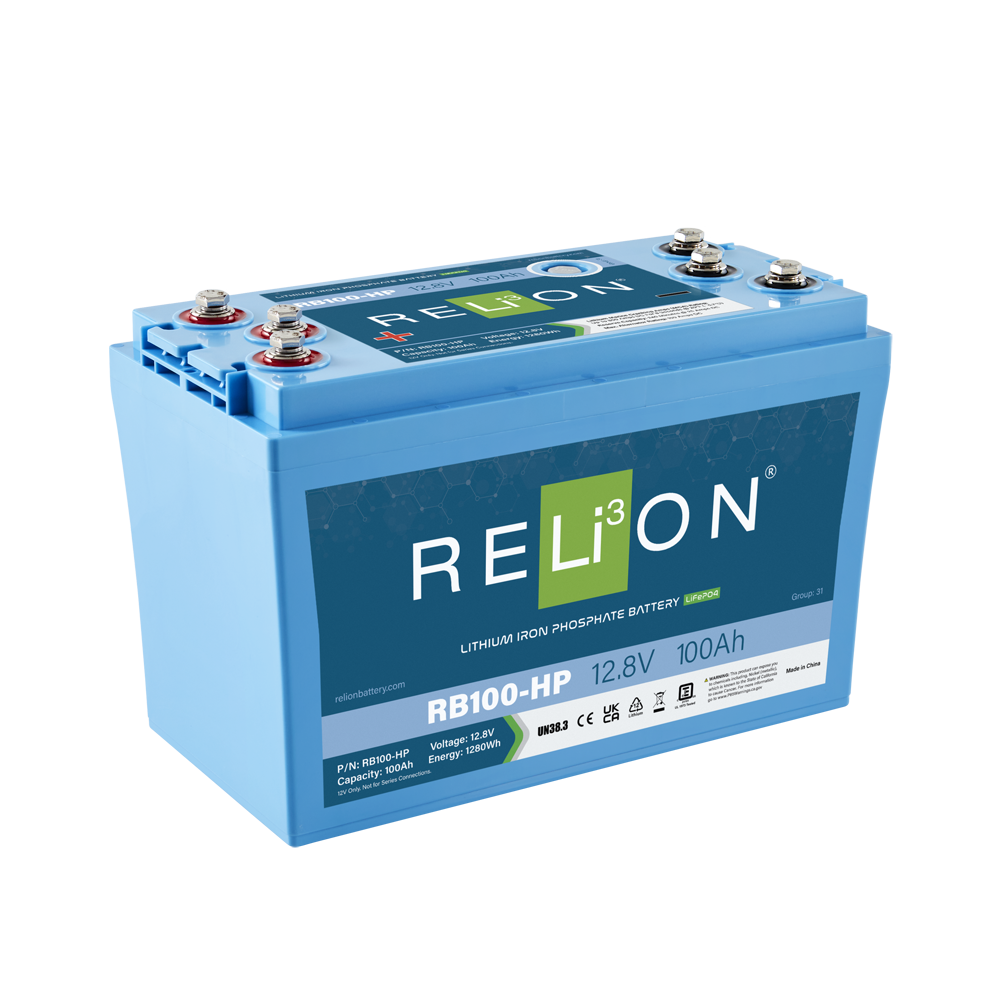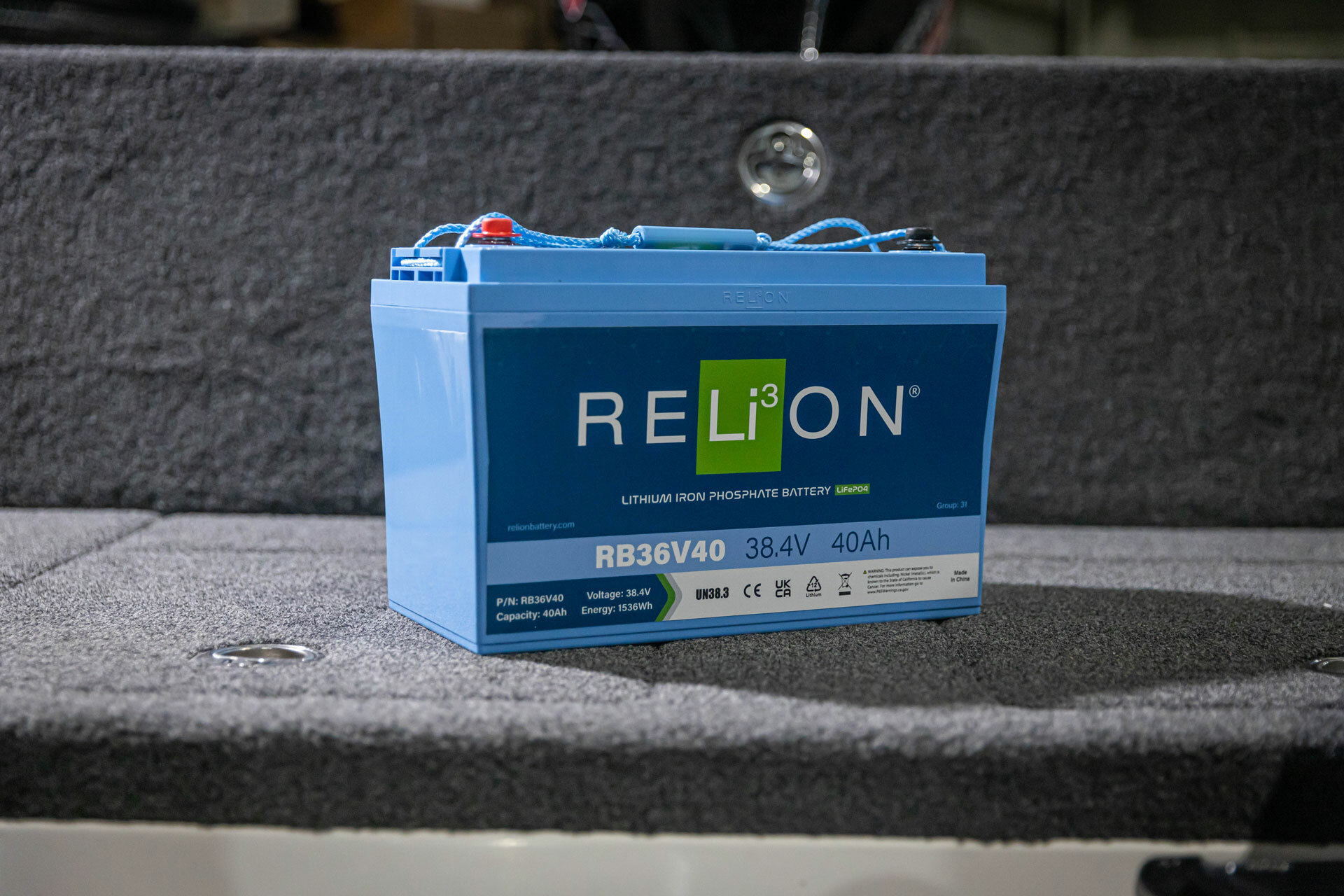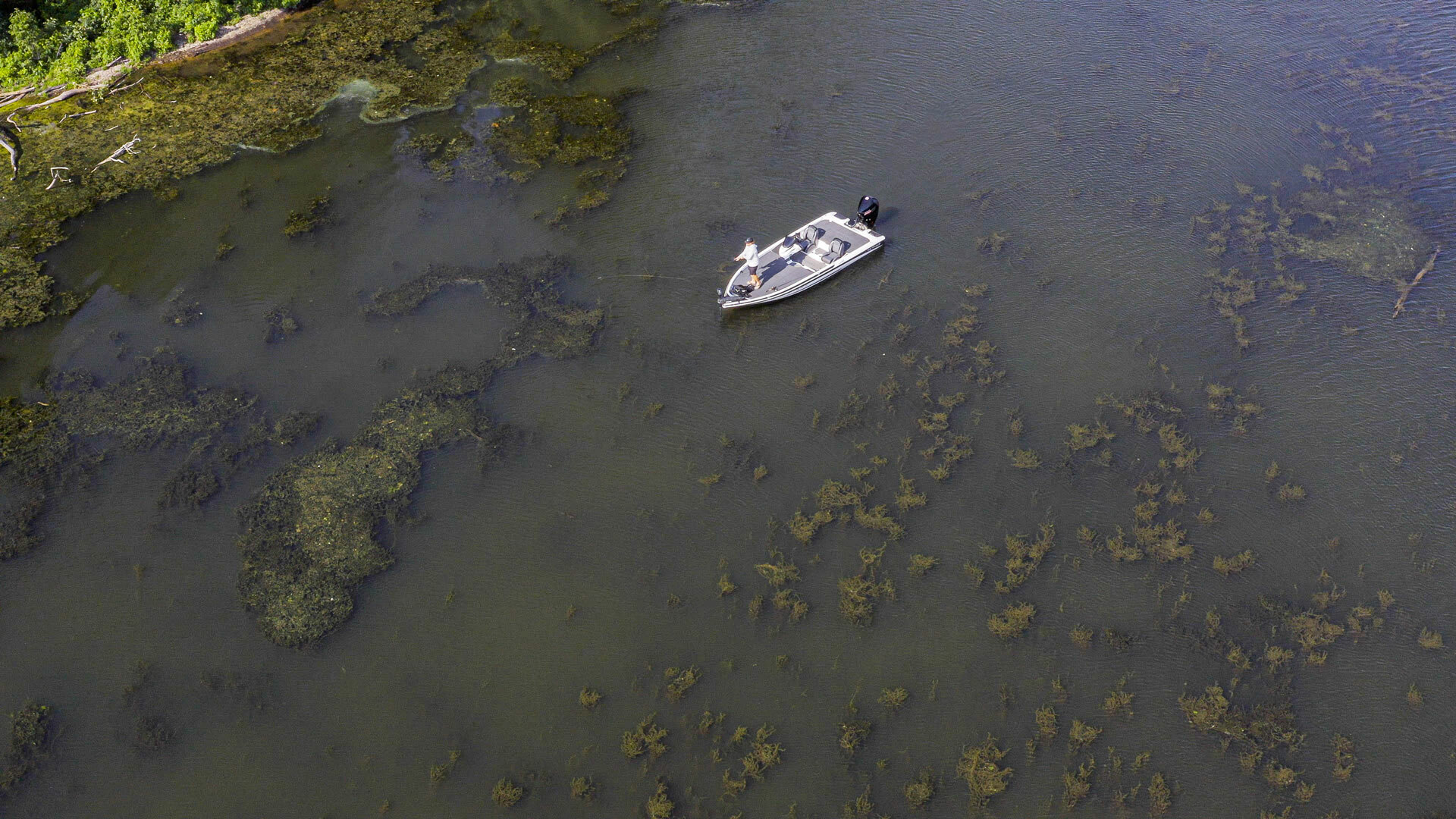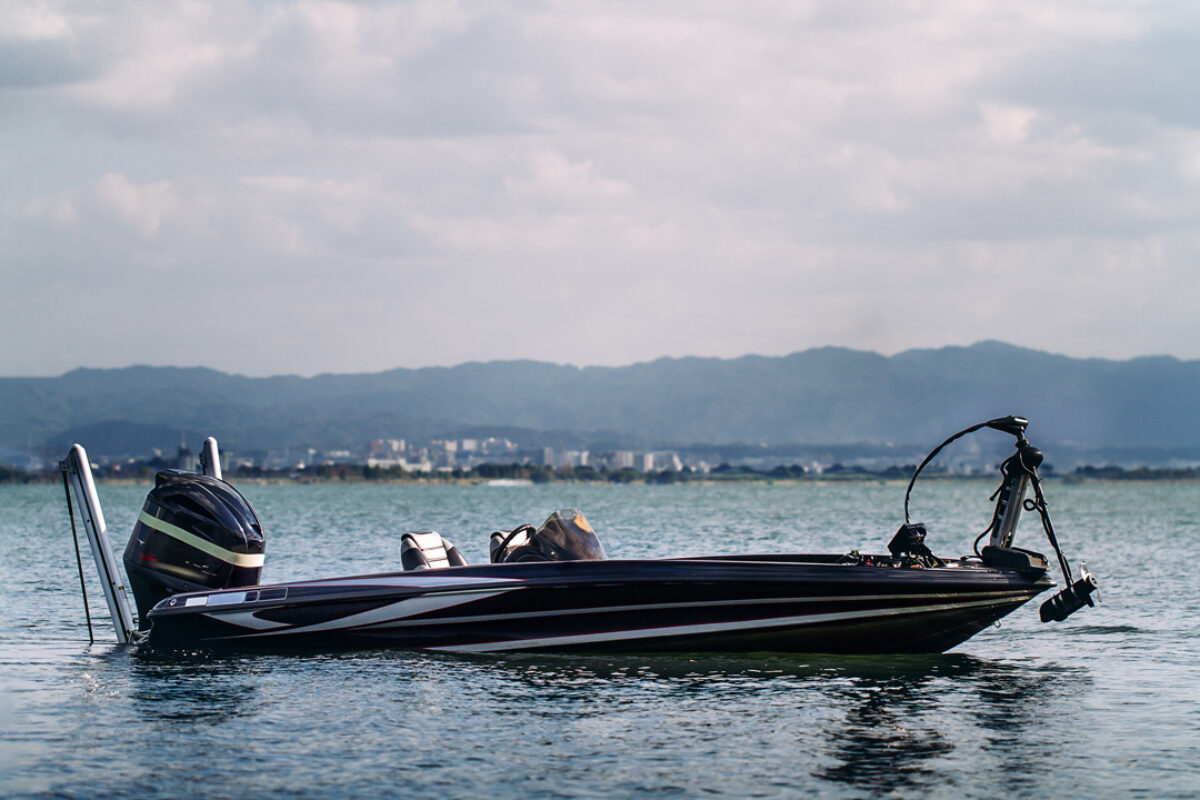Marine batteries come in three main types that include deep cycle, starting, and dual-purpose. If you’re a new fisherman, boat owner, or interested in upgrading your boat to lithium batteries, you may be curious what the difference is between them. Further, you may wonder why lithium batteries are a better choice compared to lead-acid when it comes to your boat. Some of the significant benefits of lithium batteries include longer shelf life, constant power, temperature resistance, faster charging, no maintenance, lightweight and they’re safe and non-hazardous. Now, let’s jump into the differences between each type of marine battery.

Dual Purpose Batteries
You may be wondering, what is a dual-purpose battery? A dual-purpose marine battery provides enough power to start the engine and turn it over, while also providing enough energy to keep your trolling motor running consistently. As the name implies, dual-purpose batteries can be used for both purposes. The RELiON HP line, which includes the RB100-HP and RB300-HP, are dual-purpose models capable of providing up to 800 amps for two seconds to start your boat’s motor.
Marine batteries come in an array of different BCI sizes. The most used marine battery sizes include batteries that fall into Group 24, Group 27, Group 31, and 8D. The RELiON RB100-HP is a Group 31 marine battery and the RB300-HP 12V 300Ah battery falls in the 8D battery group size. Common applications for the 100-HP include bass boats and charter fishing boats and common applications for the 300-HP include large sailboats and catamarans.
Deep Cycle Batteries
Deep cycle batteries are designed to provide stable energy and continuous power to your trolling motor over a longer timeframe. These batteries are used to powerhouse loads that commonly include navigation aids, fish finders, running lights, radios, and trolling motors. Depending on what you are looking for; you can get the best of both worlds with the dual-purpose motor, but if you are looking for a battery that will last longer in your trolling motor, then be sure to check out the deep cycle batteries. All RELiON products are deep cycle and include both lithium deep cycle batteries and AGM.
Starting Batteries
Boat starting batteries are used for starting the ignition. With marine batteries, it is necessary to start the engine and then provide enough power to sustain the motor and devices connected to the boat. RELiON offers the RB100-HP, which is a Group 31 battery, and the RB300-HP, which is a Group 8D battery. Our High Performance series batteries are both marine starting batteries and deep cycle batteries to power your onboard electronics. The RB100-HP has increased peak amps over our standard batteries. This increase in peak amps can be used to start even the most demanding of outboard motors. Essentially, starting batteries discharge a large amount of energy for a short period of time making them perfect for starting your outboard engines.

Trolling Motor Batteries
Trolling motor batteries are specially designed batteries for a boat trolling motor. The purpose behind them is to provide electricity over a more extended period of time when slow trolling through fishing areas. The number of lithium batteries you need depends on your trolling motor voltage. RELiON offers 12V and 24V lithium batteries. If you have a 12V trolling motor, then you can choose from several 12V lithium battery options. If you have a 24V trolling motor, you can use 2 12V batteries in series or a single 24V battery. If you have a 36V trolling motor you can use 3 12V batteries in series. RELiON offers several 12V lithium batteries options to choose from. Like a fuel tank gauge, the amp hours will determine how long your battery will last. The amp-hour provides a measurement of charge within your trolling motor battery. The most common lithium trolling motor batteries are going to be lightweight and provide enough amp-hours to optimize your time fishing. RELiON offers great options for your trolling motor including the RB36V40 36-volt battery, and 12-volt options including the RB52, RB60, RB75, RB80, and RB100, which are 52Ah, 75Ah, 60Ah, 80Ah, and 100Ah deep cycle batteries. To get the same runtime as a wet or AGM lead-acid battery, you will need to use a lithium battery that is 60% the capacity of that lead-acid battery. If you want more time on the water, size up from there, or add additional batteries to your boat's battery bank.
To learn more about how to calculate your energy needs and find the optimal battery for your application and usage, visit our Lithium Battery Selector Tool.

How To Charge Marine Batteries
When comparing lithium marine batteries to lead-acid, lithium batteries can charge at a much higher current and they charge more efficiently. This means they can be charged faster. Lithium batteries have other advantages and do not need to be charged if they are partially discharged. Unlike lead-acid batteries, which when left in a partial state of charge will sulfate, drastically reducing performance and life.
We recommend using a multi-bank charger so that each 12V battery can be charged separately to ensure they stay balanced and get fully charged. We strongly recommend you use a lithium battery charger. If this recommendation is disregarded then it's best to choose AGM, Gel, sealed battery charge profiles to charge a lithium battery. Two of our charger recommendations include the ProMariner ProSport and ProTournament Elite series of chargers.
LiFePO4 marine batteries can also be charged with most alternators. Depending on the quality of the alternator, it should work with LiFePO4 batteries. Low-quality alternators with poor voltage regulation can cause the BMS to disconnect LiFePO4 batteries. If the BMS disconnects the batteries, the alternator could be damaged. To protect your LiFePO4 battery and alternator please be sure to use a compatible high-quality alternator or install a voltage regulator. Please contact RELiON technical support if you need assistance.
Ultimately, when you’re looking to purchase your first set of batteries or upgrade from lead-acid, it’s best to understand what you need based on your setup and power requirements. If you are ready to upgrade your boat to lithium batteries, check out our selection of lithium marine batteries. If you have any questions, please contact our team and we will be glad to help you out.
